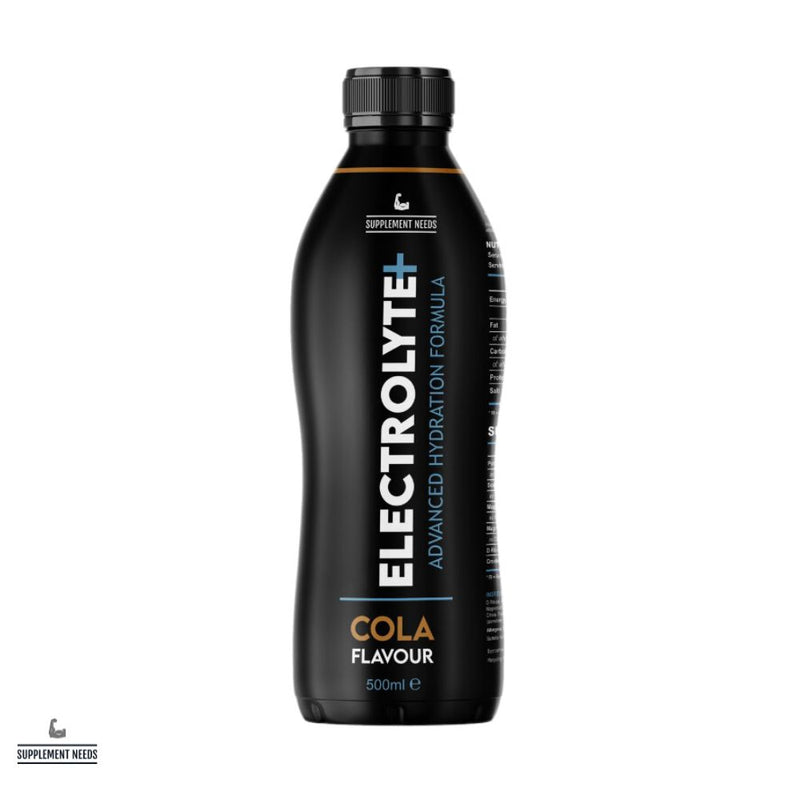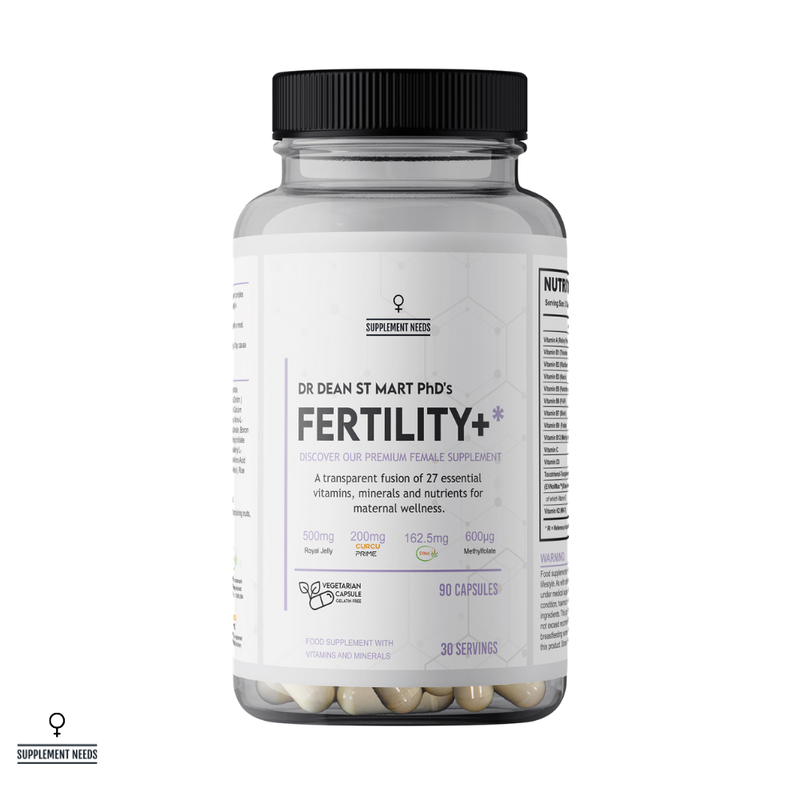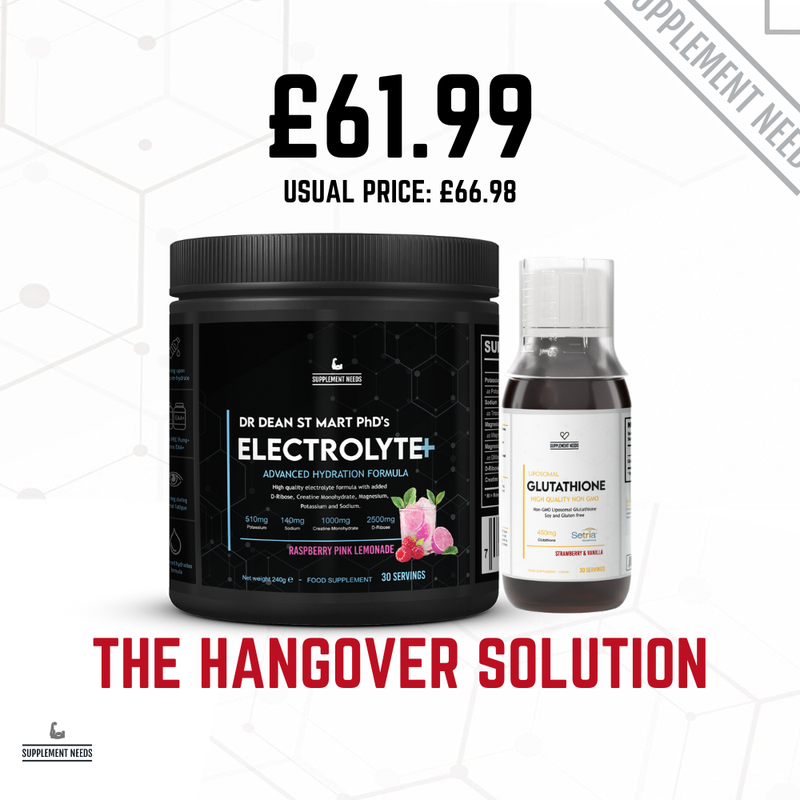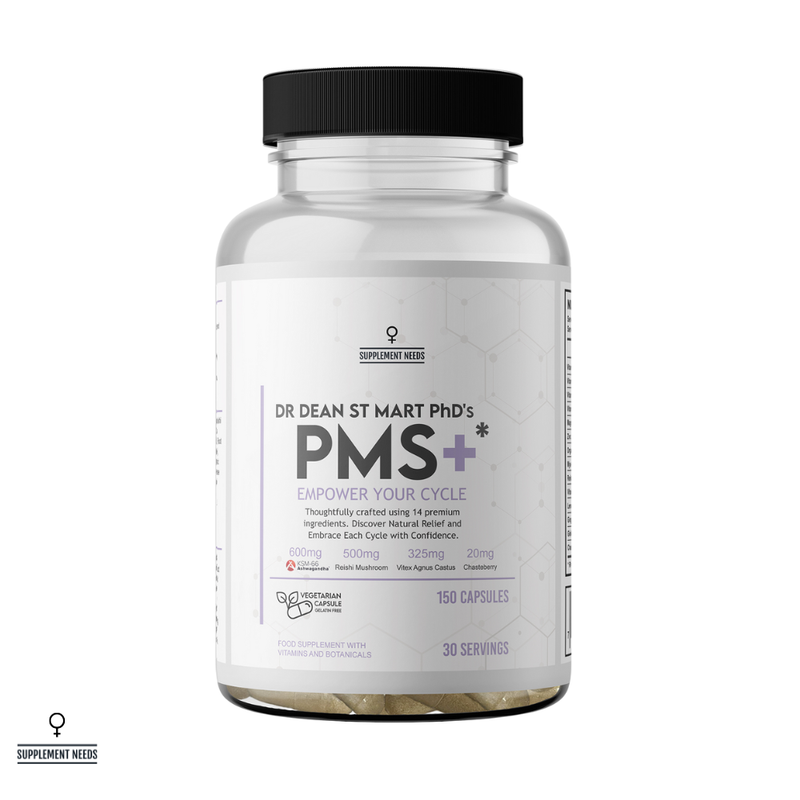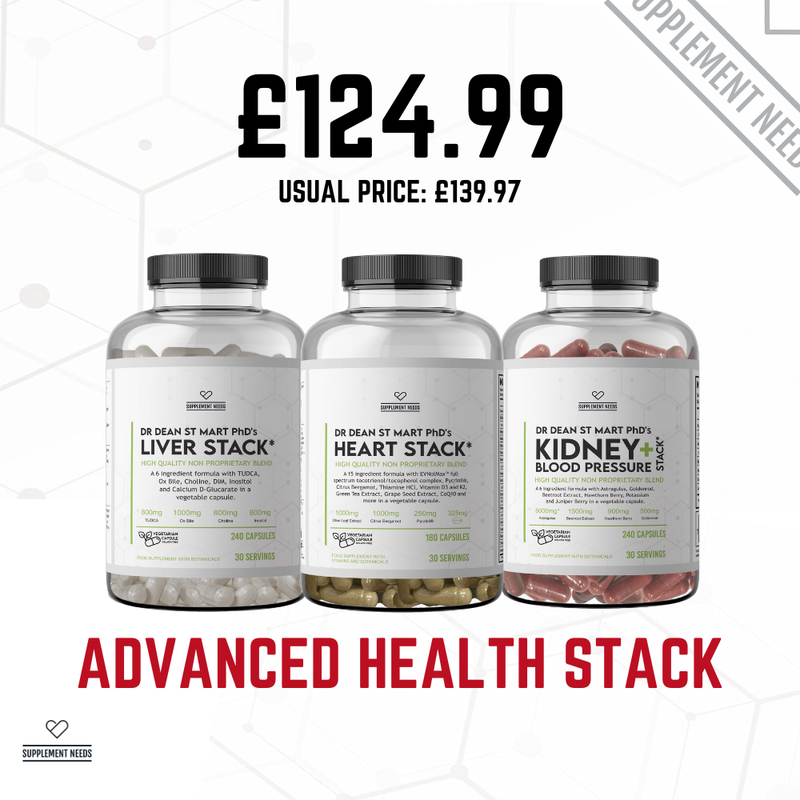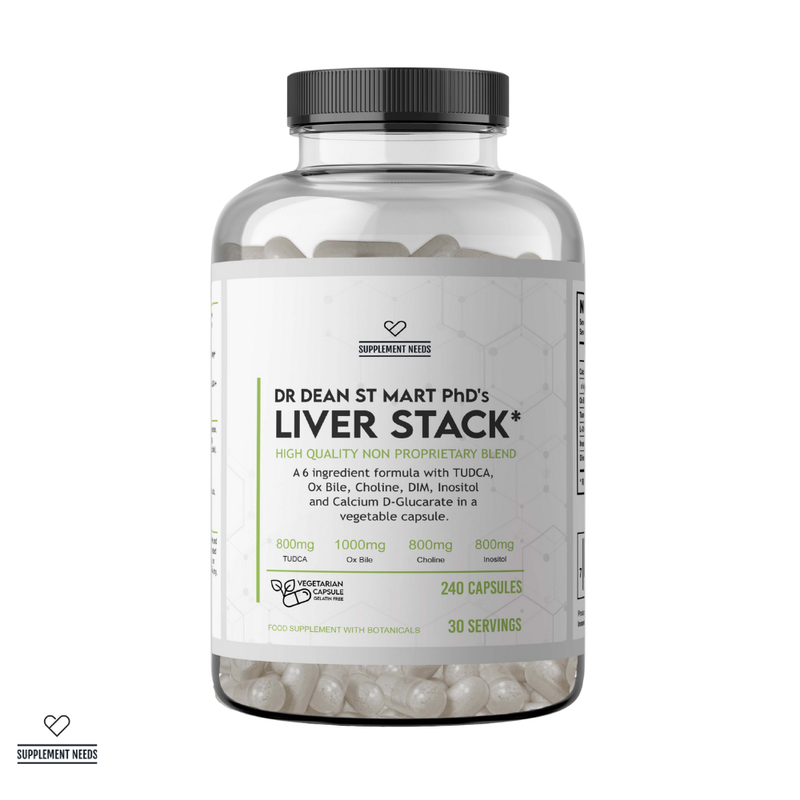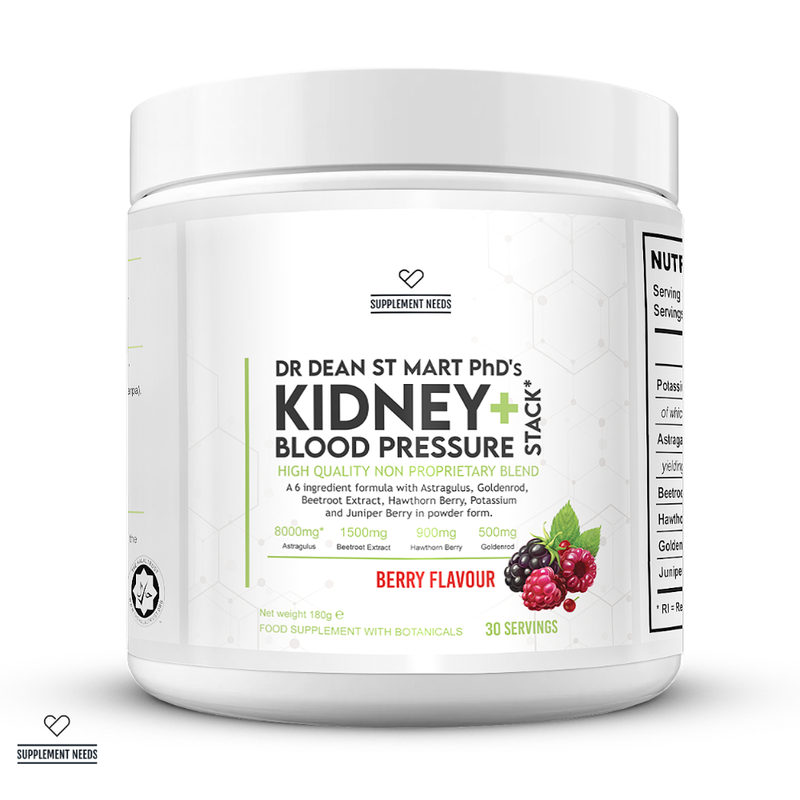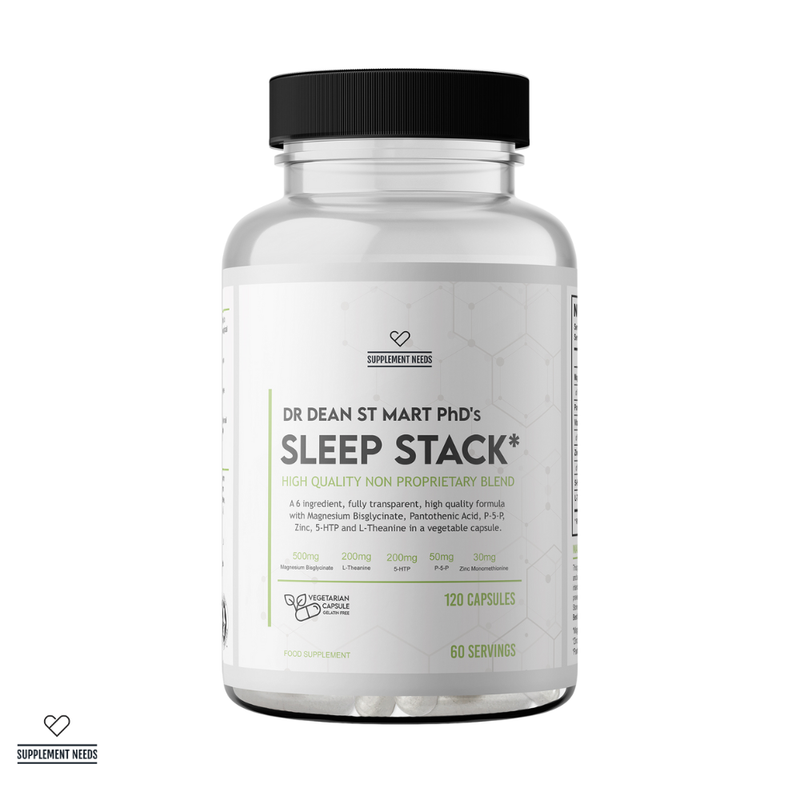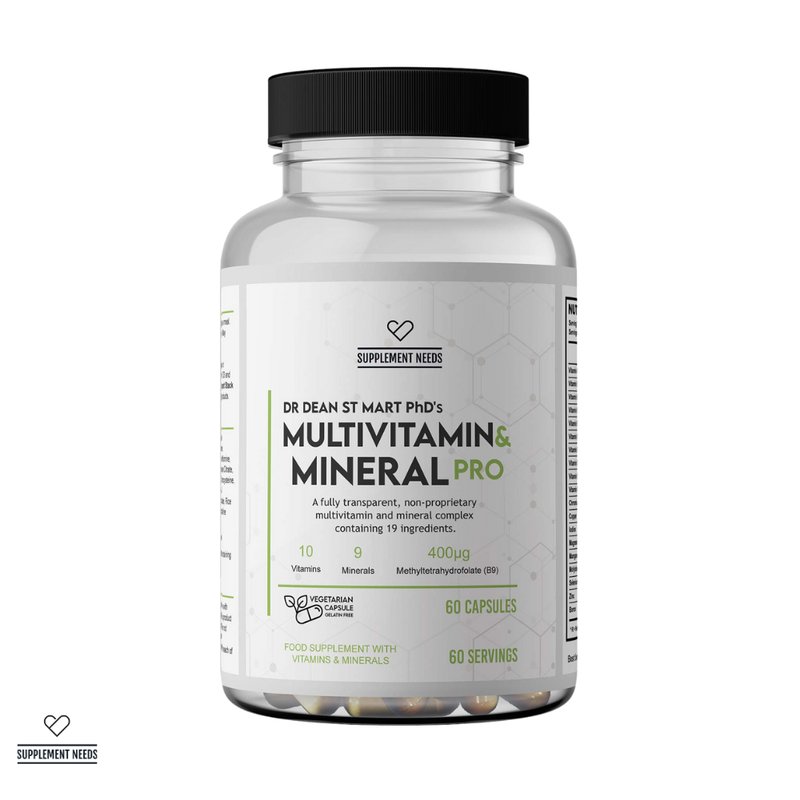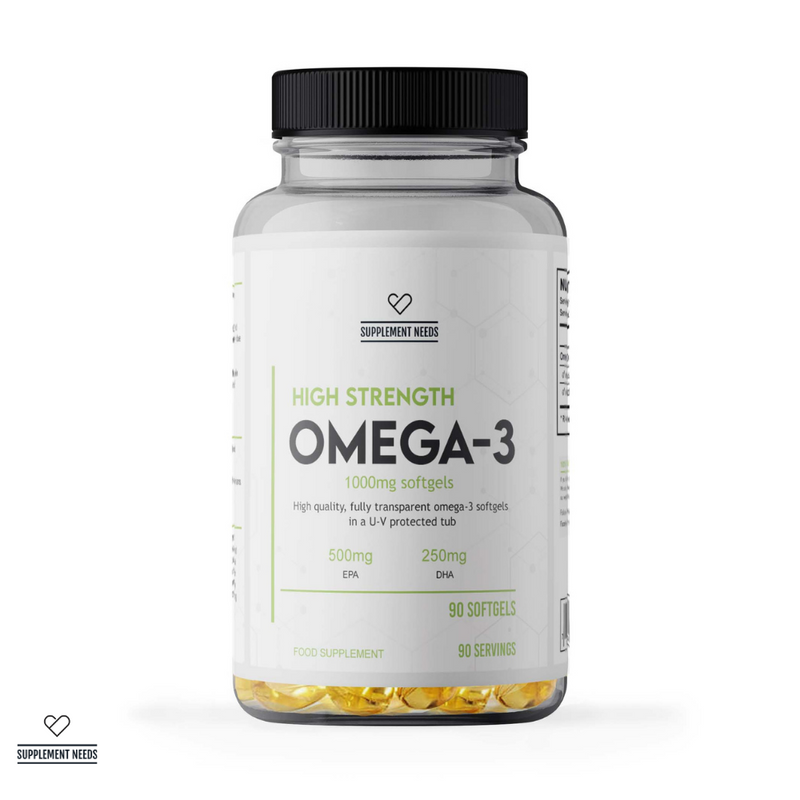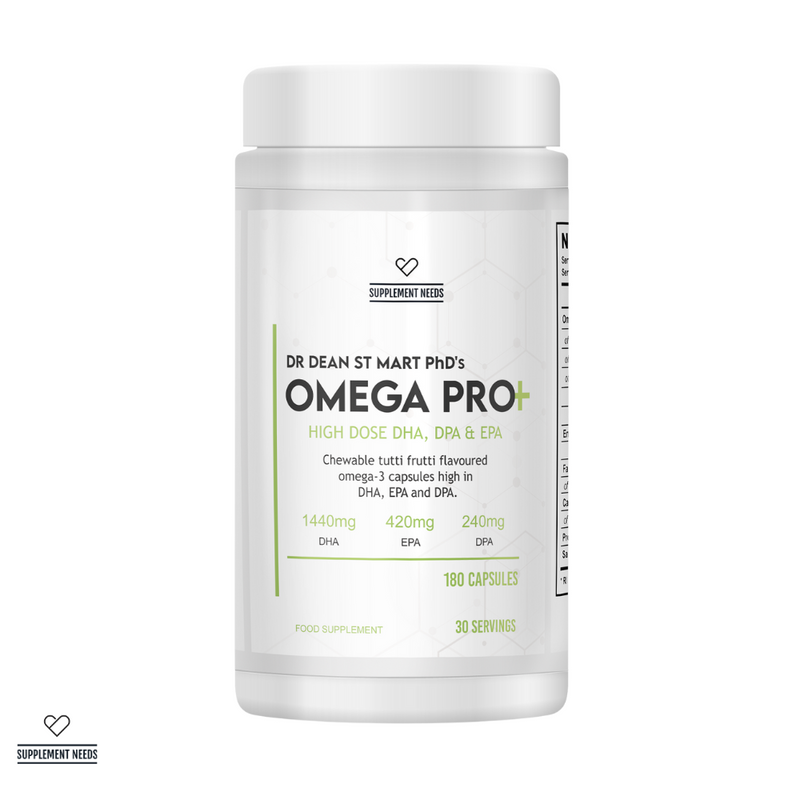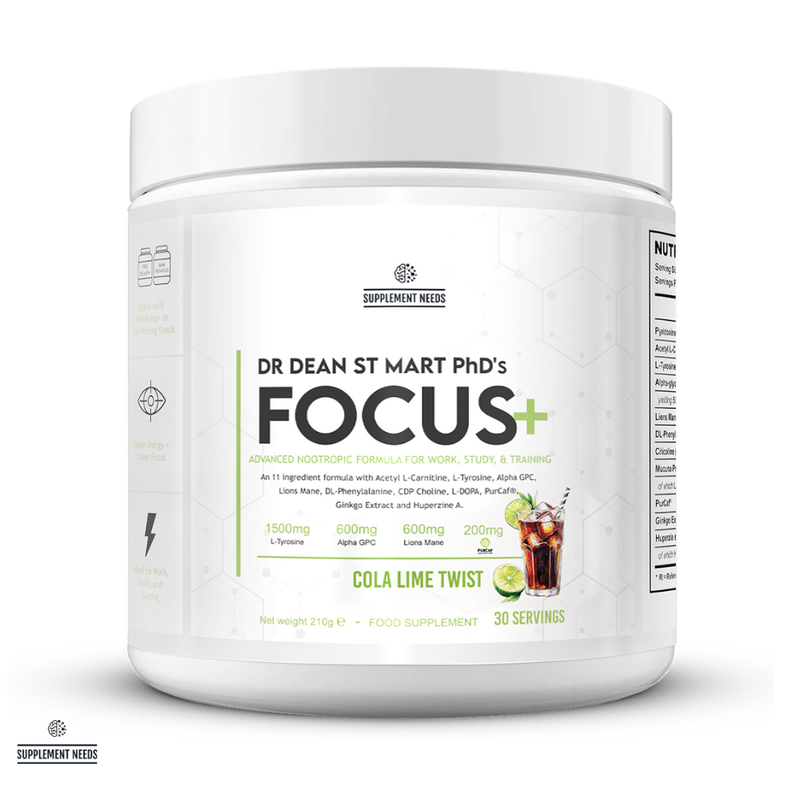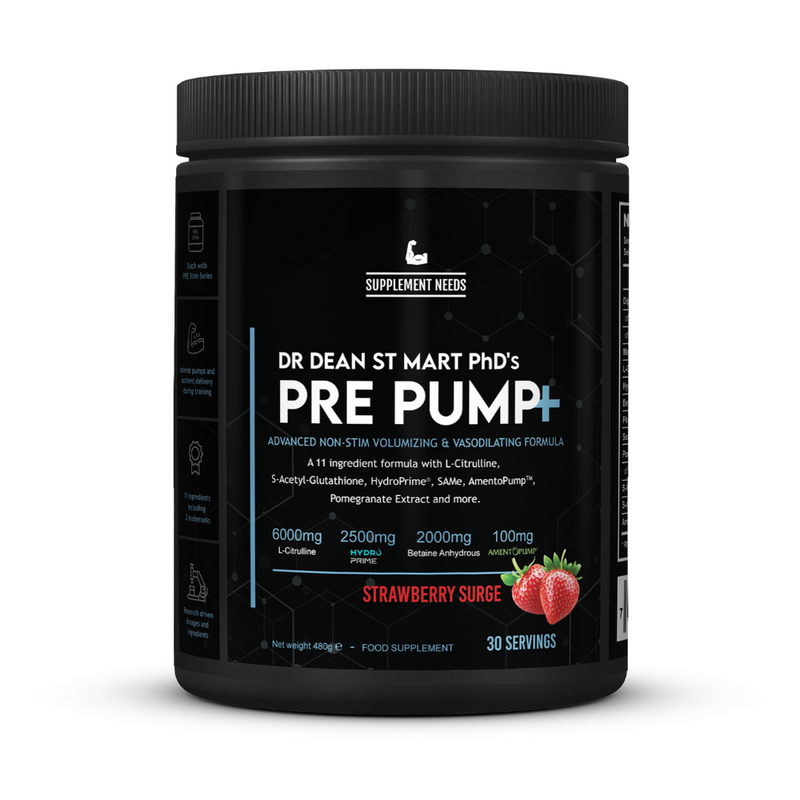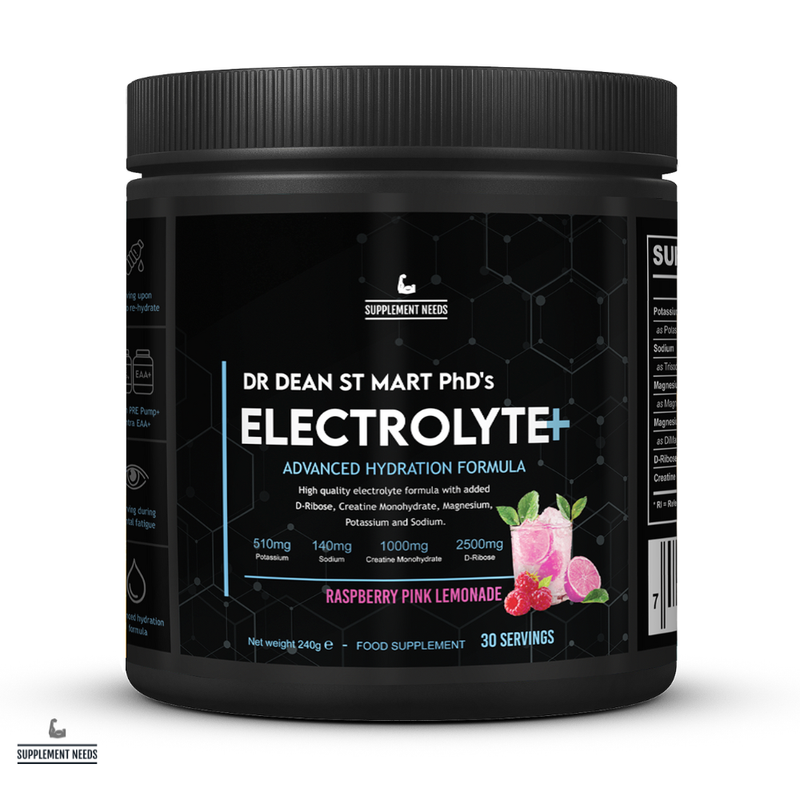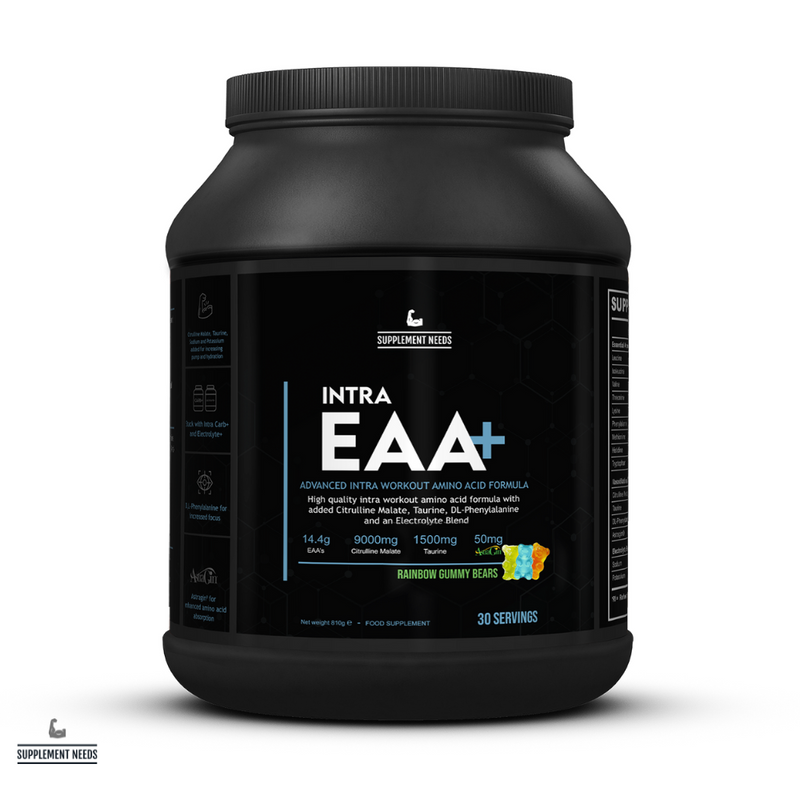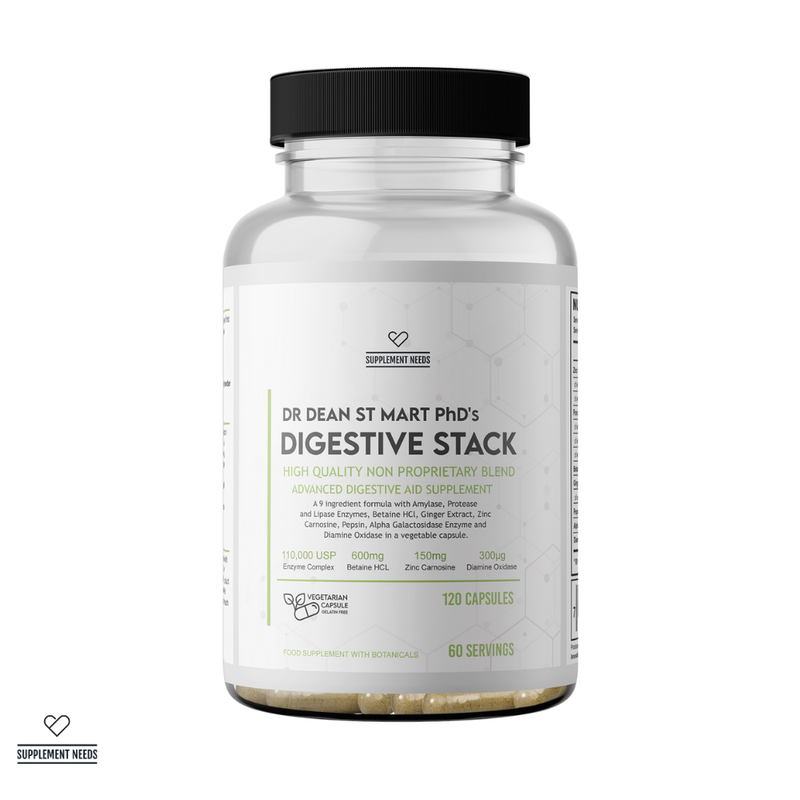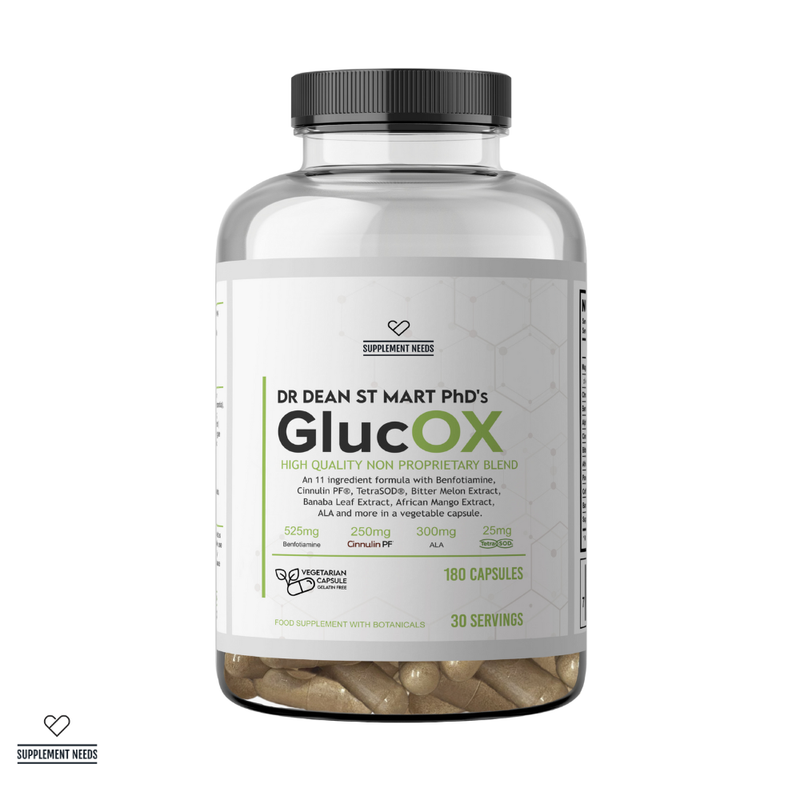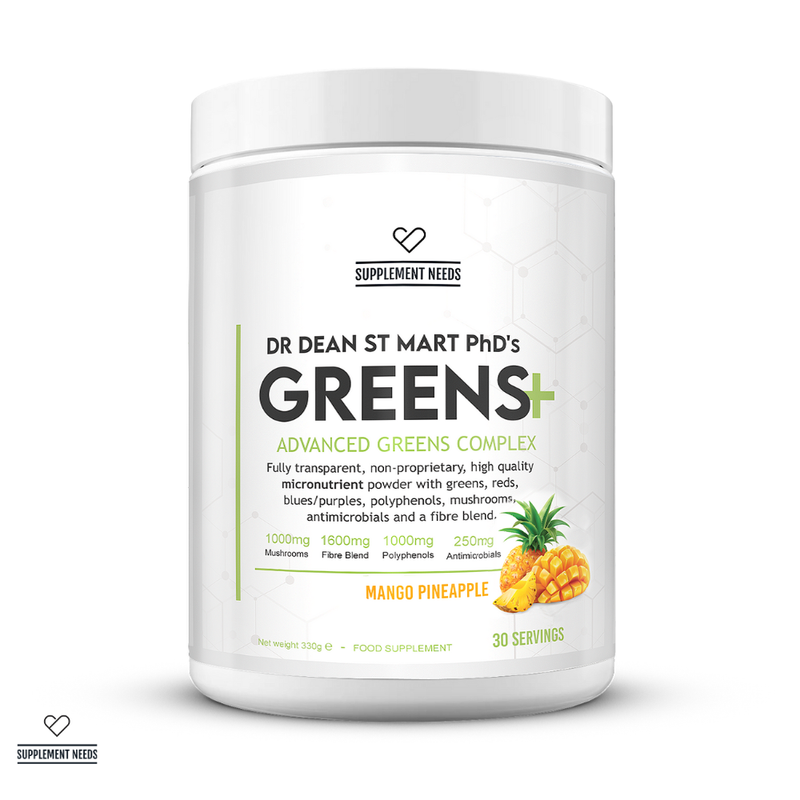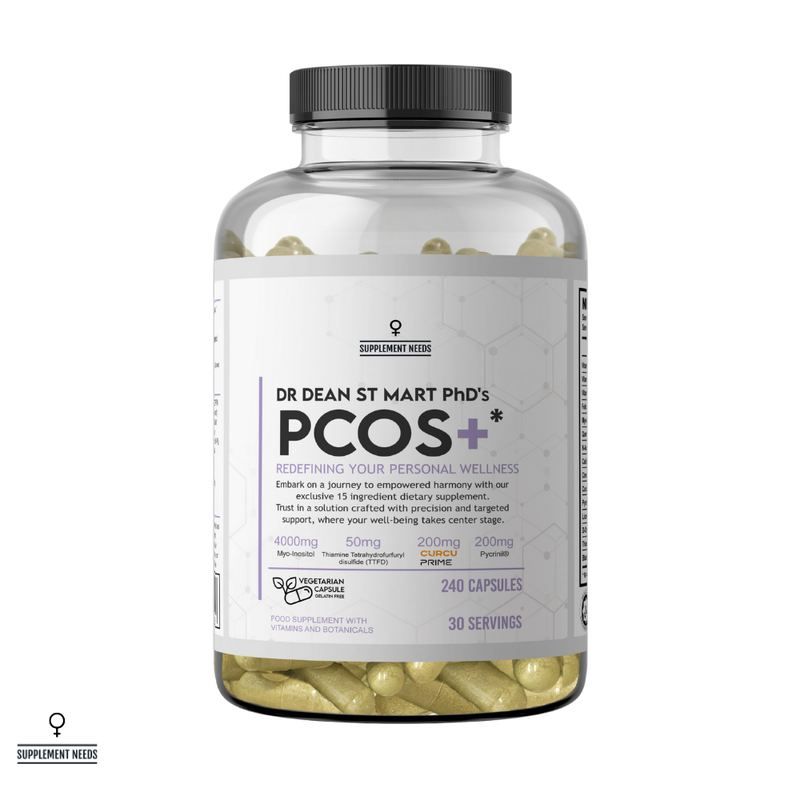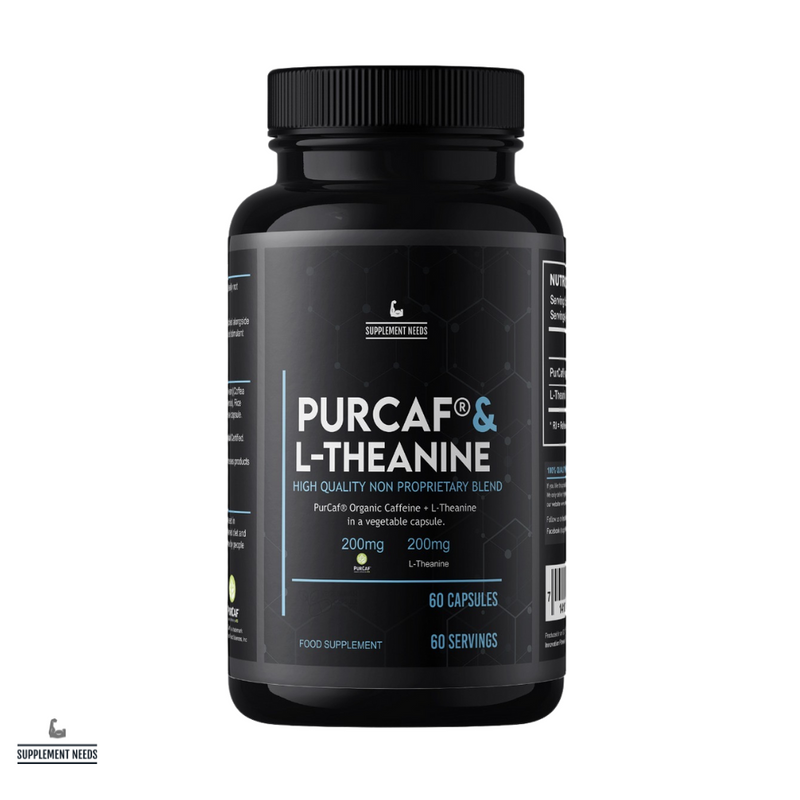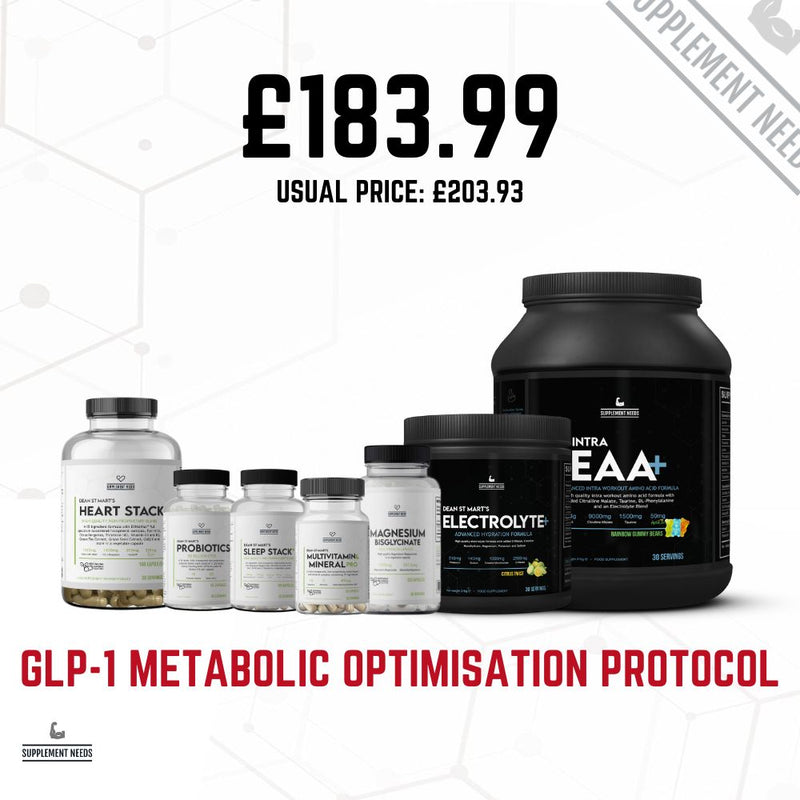High blood pressure, also known as hypertension, is a condition in which the force of blood against the walls of your arteries remains consistently elevated.
This “silent killer,” typically produces no obvious symptoms, even at levels that significantly increase the risk of heart attack, stroke, and other serious complications.
In the UK, around seven million people have a formal diagnosis of hypertension, and experts estimate that over one million more are undiagnosed1. Across the globe, more than 1.3 billion adults live with high blood pressure, making it the leading modifiable risk factor for premature death2.
But what causes this sometimes fatal flaw, and what can we do to reduce the risk? Well, in this article, the Supplement Needs team will cover exactly that, including the best supplements to keep your heart healthy. Keep reading to learn more…
What can cause high blood pressure?
But just before we look at the factors that cause high blood pressure, it’s important to understand blood pressure levels. Blood pressure is measured in millimetres of mercury (mm Hg).
Blood pressure readings consist of two numbers, usually written as a fraction (such as 120/80 mm Hg). The top number indicates systolic pressure, which is the pressure when your heart contracts and pumps blood out. The bottom number shows the diastolic pressure, which is the pressure when your heart relaxes between beats.
According to the American College of Cardiology, and the American Heart Association, blood pressure can be split into four general categories: normal, elevated, stage 1 hypertension, and stage 2 hypertension3.
|
Blood pressure category |
Top number (mm Hg) |
And/or |
Bottom number (mm Hg) |
|
Normal |
<120 |
and |
< 80 |
|
Elevated |
120 - 129 |
and |
< 80 |
|
Stage 1 hypertension |
130 - 139 |
or |
80 - 89 |
|
Stage 2 hypertension |
140 > |
or |
90 > |
Hypertension arises from a mixture of inherited traits, lifestyle habits and health conditions. Understanding these can help target both prevention and treatment. Let’s break this down into non-modifiable risk factors, and modifiable risk factors.
In the former category, age remains the strongest predictor. From middle age onwards, arterial walls lose elasticity, causing resting blood pressure to climb4.
Genetics also has a major impact on heart health. Having a parent or sibling with hypertension doubles your lifetime risk5.
Ethnicity and sex further amplify that risk. People of African or South Asian heritage develop high blood pressure at younger ages, while men outpace women until the menopause, after which women’s rates often exceed men’s6.
Additionally, underlying health conditions can further exacerbate the likelihood of hypertension. Diabetes, kidney disease, and sleep apnoea each have been linked to high blood pressure, putting greater emphasis on people living with those conditions to adopt a proactive approach to their health.
With so many elements beyond our control, the importance of amending the modifiable lifestyle factors becomes all the more important.
Among these, dietary choices wield enormous influence. Consuming more than 6 g of salt (sodium chloride) daily is associated with higher blood pressure, yet the average UK adult ingests around 8 g per day7.
Physical inactivity compounds the problem. Adults should aim for at least 150 minutes of moderate-intensity exercise per week, with each additional hour of brisk walking linked to an average 4 mmHg drop in systolic pressure8.
Excess weight also adds additional stresses to the cardiovascular system. For every 2.3 kg (5 lb) of extra body weight, systolic blood pressure rises by approximately 2 mmHg9.
Unsurprisingly, alcohol and tobacco are major detrimental impactors. Regular heavy drinking (defined in the UK as more than 14 units of alcohol per week) increases blood pressure by affecting hormonal and nervous system pathways10.
Smoking ingests nicotine and other chemicals that constrict blood vessels and cause spikes in pressure, with chronic smokers facing a 10 mmHg higher systolic reading on average11.
Lastly, you can’t underestimate the power of a good night’s sleep. Poor-quality or insufficient sleep (less than six hours per night) disrupts circadian regulation of blood pressure and is linked to a 20% higher risk of hypertension12.
With so many factors working against the health of our hearts, it is important to make great strides as early as possible to give yourself the best possible defence.
Beyond health and lifestyle changes, supplementation can provide the necessary leg up to keep you on the right side of the dirt.
How to reduce high blood pressure
When it comes to the heart, it’s best to go with a broader health strategy, tackling diet and lifestyle modifications simultaneously.
Let’s begin with the former. A diet low in sodium and rich in potassium, magnesium, and fibre can have a huge influence in blood pressure. These are the key areas to pursue:
-
Fruits and vegetables: at least five portions per day to boost potassium and antioxidants.
-
Whole grains and pulses: for sustained energy release and magnesium intake.
-
Lean protein: fish, poultry and legumes rather than red and processed meats.
-
Limited salt: no more than 6 g per day by cooking from scratch, using herbs and spices for flavour.
-
Processed snacks and ready meals: swap these out for whole-food alternatives to improve overall nutrient density.
While we’re talking about consumption, smoking and excessive alcohol intake both have deleterious effects on vascular tone and blood pressure. Quitting smoking can lower systolic pressure by up to 12 mmHg within a year13.
To lessen the impacts of alcohol on the heart, both men and women should keep intake below 14 units of alcohol per week, though even this can raise both systolic and diastolic readings and contribute to weight gain14. The best case, of course, is to steer clear of alcohol and nicotine altogether.
On the physical front, adults should aim for a minimum of 150 minutes of moderate-intensity exercise weekly. This can include brisk walking, cycling, or swimming.
Exercise promotes nitric oxide production, helping blood vessels dilate. Additionally, exercise helps to keep weight at a healthy level. Every 2.3 kg (5 lb) of weight loss can lower systolic pressure by around 2 mmHg15.
Last of all, sleep is vital. Chronic stress and poor sleep quality drive sustained sympathetic nervous system activity, which elevates blood pressure over time.
Aim for seven to nine hours of uninterrupted sleep nightly. Keep screens out of the bedroom, maintain a regular sleep schedule, and optimise light exposure to support circadian rhythms16.
With these changes, alongside regular supplementation, you can make great strides with your heart health, and minimise your risk of hypertension.
ARB therapy and Telmisartan: pharmaceutical support for hypertension
Whilst lifestyle changes and supplements can play supportive roles in blood pressure management, sometimes people will require prescription medication.
One of the cornerstone drug classes used in the treatment of hypertension are angiotensin II receptor blockers (ARBs). Of these, Telmisartan is a commonly prescribed option.
So, what are ARBs, and how does a drug like Telmisartan work?
Let's take a look...
- ARBs block the angiotensin II type 1 (AT) receptor, which prevents aniotensin II from binding and causing vasoconstriction.
- By inhibiting this pathway, ARBs actually promote vasodilation and lower systemic blood pressure.
- Telmisartan, in particular, is known for its long half-life (about 24 hours) compared to other ARBs, enabling once-daily dosing.
Supplements that may assist with high blood pressure
At Supplement Needs, we have curated a range of products tailored to support blood pressure management.
Each of the following formulations targets specific physiological pathways implicated in hypertension, from vascular tone and renal function to oxidative stress and lipid balance.
Supplement Needs Heart Stack

For comprehensive cardiovascular care, Heart Stack delivers a fully transparent blend of 15 research-backed ingredients in 180 capsules.
Formulated by Dr Dean St Mart, this non-proprietary complex combines potent antioxidants, botanicals, and vitamins at clinically effective doses to help maintain healthy cholesterol levels, support endothelial function and promote normal heart muscle performance.
Take three capsules with breakfast and three with your evening meal. This Heart Stack can help you maintain balanced lipid profiles, bolster vascular health and support long-term cardiovascular resilience.
Supplement Needs Kidney & Blood Pressure Stack

Designed to support the organs central to blood pressure regulation, the Supplement Needs Kidney & Blood Pressure Stack brings together botanicals and minerals to boost healthy kidney filtration and vascular function.
Containing juniper berry extract to support natural diuresis and sodium excretion, beetroot extract for systolic reductions, and hawthorn berry extract to improve blood flow, this stack assists cholesterol levels and cardiovascular health.
Take four capsules twice daily with meals. For patients with mild to moderate hypertension, this stack can be a vital aid.
Supplement Needs Omega-3 High-Strength

Omega-3 long-chain polyunsaturated fatty acids, EPA and DHA, are replete with cardioprotective effects, reducing inflammation, improving arterial compliance and modulating heart rate variability.
Captivating on this, the Supplement Needs Omega-3 High Strength softgels deliver 500 mg EPA and 250 mg DHA to lower systolic pressure by 3–5 mmHg
Take 1 softgel capsule up to three times daily. Ideal for individuals looking to complement antihypertensive medication with an anti-inflammatory, membrane-stabilising nutrient.
Supplement Needs Omega Femme

Specifically tailored for women’s cardiovascular and hormonal balance, the Supplement Needs Omega Femme supplement combines multiple essential fatty acids, including Omega-3, Omega-6, Omega-7, and Omega-9 derived from sea buckthorn fruit and seed oil.
Two capsules are taken twice daily with food. This supplement provides anti-inflammatory support, which may be particularly beneficial during peri menopause, when blood pressure can rise due to hormonal fluctuations17.
Supplement Needs Omegavie

For the health-conscious vegans of the world, the Supplement Needs Omegavie capsules provide an effective vegan Omega-3 supplement. Packed with 250 mg DHA and 50 mg EPA per capsule, derived from algae sources, this supplement has been specifically designed to aid in ensuring daily essential fatty acid intake is supported.
Take two capsules daily, served in a vegan softgel shell. This supplement is ideal for those seeking a premium omega formulation with proven cardiovascular outcomes, without compromising their vegan beliefs.
Supplement Needs Magnesium Bisglycinate

Magnesium plays a big role in maintaining cardiovascular health, by influencing various heart functions, including heart rhythm, blood pressure, and blood vessel function.
Magnesium deficiency has been linked to heart conditions including coronary artery disease, arrhythmias, and hypertension, so it is important to maintain healthy levels18.
Here, Supplement Needs Magnesium Bisglycinate can help. This non-proprietary product is formulated using 1375 mg Magnesium Bisglycinate to yield 151.2 mg Magnesium - 42% of referenced intake.
Take one to two tablets daily, ideally in divided doses. Studies have shown that supplemental magnesium can reduce systolic and diastolic pressures by up to 4 mmHg, particularly in individuals with marginal magnesium status19.
Supplement Needs Vitamin D3 & K2

One of the biggest indicators in people with hypertension are lower Vitamin D levels. Vitamin D assist in reducing the risk of cardiovascular events, and improving heart function. A study found that Vitamin D3 supplementation improved heart function in people with chronic heart failure20.
Similarly, Vitamin K2 helps to regulate calcium in the body. By activating matrix Gla protein (MGP) which inhibits calcium buildup in blood vessels, Vitamin K2 helps to prevent the slowing of arterial stiffness and vascular calcification, both linked to heart disease21.
This dual-action formula addresses Vitamin D insufficiency and supports vascular health through Vitamin K2. Formulated using 125 mcg Vitamin D3, and 100 mcg Vitamin K2, these capsules should be taken once daily with a meal.
Supplement Needs Liposomal CoQ10

CoQ10 is a lipophilic antioxidant present in mitochondrial membranes. It may lower blood pressure by improving endothelial function and reducing oxidative stress22.
The Supplement Needs Liposome CoQ10 product has been specifically designed to aid in ensuring optimal absorption of the key ingredient - CoEnzyme CoQ10.
It utilises an exclusive patented technology which micro-encapsulates the ingredients in natural non-hydrogenated sunflower phosphatidylcholine derived liposomes - as small as 50 nanometers to permeate the lipid bilayer of cells and improve bioavailability.
One 5 ml serving should be consumed daily with food.
But before you begin…
Before introducing any new supplement into your daily routine, it’s important to remember these key things.
Firstly, you should consult with a qualified healthcare professional before taking supplements. A personalised assessment will help you avoid unnecessary or potentially harmful additions to your regimen.
Secondly, it’s critical to remember that supplements should complement, not replace, a healthy lifestyle or prescribed medication. If you have been diagnosed with hypertension, continue with the treatments your doctor has recommended unless you receive explicit instructions otherwise.
Lastly, always ensure you do not exceed the recommended dosage of any supplement. A healthcare professional can advise on the optimal dosage based on factors like age, and concurrent therapies. Always follow the label’s guidance and report any unusual symptoms immediately.
Shop the best supplements for heart health and high blood pressure
We hope you’ve found this deep dive into high blood pressure interesting and insightful. If you want to minimise your risk of hypertension, you’re in the right place.
At Supplement Needs, we have a wide-ranging selection of supplements carefully designed to provide the vitamins and minerals at efficacious doses to live a healthy life.
Formulated by Dr Dean St Mart PhD, an industry-leader in supplementation, our range addresses every aspect of dietary supplementation to help you get the most out of your productivity needs.
Shop Supplement Needs Heart Health Supplements today
For more insights and information about supplements, read the Supplement Needs blog…
What Is Biohacking? How Does It Work? | Could Supplements Make You More Productive? A Deep Dive Into Productivity Supplements | Alpha GPC: Decoding the Hype (and the Science)
Disclaimer:
The information on this website should not be used as a substitute for professional medical advice. If you have any questions about your health, or are planning to change your diet, please contact your doctor.
References:
1. British Heart Foundation. High blood pressure - causes and symptoms [online]. Available at: https://www.bhf.org.uk/informationsupport/risk-factors/high-blood-pressure (Accessed on 19th August 2025).
2. World Health Organisation. Hypertension [online]. Available at: https://www.who.int/news-room/fact-sheets/detail/hypertension (Accessed on 19th August 2025).
3. National Heart, Lung, and Blood Institute. What Is High Blood Pressure? [online]. Available at: https://www.nhlbi.nih.gov/health/high-blood-pressure (Accessed on 19th August 2025).
4. Mayo Clinic. High blood pressure (hypertension) [online]. Available at: https://www.mayoclinic.org/diseases-conditions/high-blood-pressure/symptoms-causes/syc-20373410 (Accessed on 19th August 2025).
5. British Heart Foundation. High blood pressure - causes and symptoms [online]. Available at: https://www.bhf.org.uk/informationsupport/risk-factors/high-blood-pressure (Accessed on 19th August 2025).
6. GOV.UK. Chapter 1: life expectancy and healthy life expectancy [online]. Available at: https://www.gov.uk/government/publications/health-profile-for-england/chapter-1-life-expectancy-and-healthy-life-expectancy (Accessed on 19th August 2025).
7. HS. High blood pressure [online]. Available at: https://www.nhs.uk/conditions/high-blood-pressure/ (Accessed on 19th August 2025).
8. NHS. High blood pressure [online]. Available at: https://www.nhs.uk/conditions/high-blood-pressure/ (Accessed on 19th August 2025).
9. National Institute for Health and Care Excellence. Hypertension in adults: diagnosis and management [online]. Available at: https://www.nice.org.uk/guidance/ng136 (Accessed on 19th August 2025).
10. British Heart Foundation. High blood pressure - causes and symptoms [online]. Available at: https://www.bhf.org.uk/informationsupport/risk-factors/high-blood-pressure (Accessed on 19th August 2025).
11. British Heart Foundation. High blood pressure - causes and symptoms [online]. Available at: https://www.bhf.org.uk/informationsupport/risk-factors/high-blood-pressure (Accessed on 19th August 2025).
12. Mayo Clinic. Sleep deprivation: A cause of high blood pressure? [online]. Available at: https://www.mayoclinic.org/diseases-conditions/high-blood-pressure/expert-answers/sleep-deprivation/faq-20057959 (Accessed on 19th August 2025).
13. Cheryl A. Oncken, William B. White, Judith L. Cooney, Jeffrey R. Van Kirk, Jasjit S. Ahluwalia, Sharon Giacco, Impact of smoking cessation on ambulatory blood pressure and heart rate in postmenopausal women, American Journal of Hypertension, Volume 14, Issue 9, September 2001, Pages 942–949, https://doi.org/10.1016/S0895-7061(01)02147-1 (Accessed on 19th August 2025).
14. British Heart Foundation. Alcohol and heart disease: what are the risks? https://www.bhf.org.uk/informationsupport/heart-matters-magazine/medical/effects-of-alcohol-on-your-heart (Accessed on 19th August 2025).
15. Mayo Clinic. Blood pressure medication: Still necessary if I lose weight? https://www.mayoclinic.org/diseases-conditions/high-blood-pressure/expert-answers/blood-pressure-medication/faq-20058056 (Accessed on 19th August 2025).
16. British Heart Foundation. How does sleep affect your heart? https://www.bhf.org.uk/what-we-do/news-from-the-bhf/news-archive/2019/november/sleep-and-heart-and-circulatory-diseases (Accessed on 19th August 2025).
17. Menopause care. Following a nutritious diet during menopause [online]. Available at: https://www.menopausecare.co.uk/blog/nutrition-diet-and-menopause (Accessed on 20th August 2025).
18. DiNicolantonio, JJ. Liu, J. O’Keefe, JH. Magnesium for the prevention and treatment of cardiovascular disease: Open Heart 2018 [online]. Available at: https://openheart.bmj.com/content/5/2/e000775 (Accessed on 20th August 2025).
19. Houston M. The role of magnesium in hypertension and cardiovascular disease. 2011 Nov [online]. Available at: https://pmc.ncbi.nlm.nih.gov/articles/PMC8108907/ (Accessed on 20th August 2025).
20. University of Leeds. New study finds vitamin D3 improves heart function [online]. Available at: https://www.leeds.ac.uk/news-health/news/article/3851/new-study-finds-vitamin-d3-improves-heart-function (Accessed on 20th August 2025).
21. Vik H. Highlighting The Substantial Body Of Evidence Confirming The Importance Of Vitamin K2 As A Cardio-Support Nutrient, And How The Right K2 Makes All The Difference. Integr Med (Encinitas). 2019 Dec [online]. Available at: https://pmc.ncbi.nlm.nih.gov/articles/PMC7238900/ (Accessed on 20th August 2025).
22. Sood B, Patel P, Keenaghan M. Coenzyme Q10. In: StatPearls [Internet]. Treasure Island (FL): StatPearls Publishing; 2025 Jan-. Available at: https://www.ncbi.nlm.nih.gov/books/NBK531491/ (Accessed on 20th August 2025).
